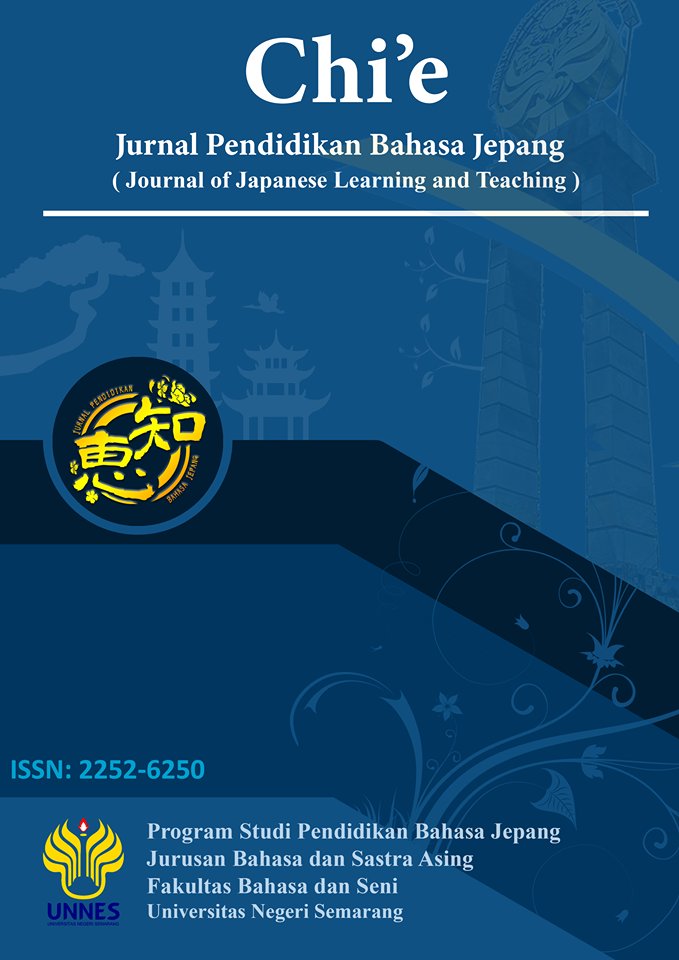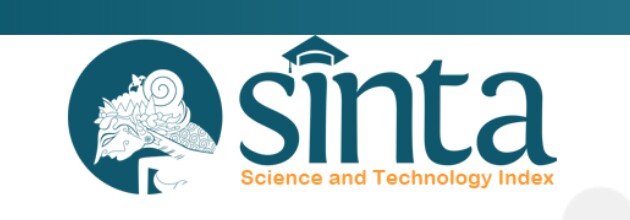Comparative Analysis of Japanese Language Teaching in Senior High School in Semarang That Use the Curriculum KTSP and Curriculum 2013
Abstract
Senior High school and vocational high school in Central Java, which many school have a Japanese language, have a distinction of the course curriculum held. It happened due to the Indonesian education curriculum often changes. And at this moment, there are two valid curriculum in Indonesia, namely the Curriculum KTSP and Curriculum 2013.
Curriculum 2013 enacted to replace the existing curriculum KTSP. However, because there are still problems in the readiness of the book, the assessment system, upgrading of teachers, assistant teachers and training of school principals who are not evenly distributed, Curriculum 2013 eventually dismissed.
But for schools that became the main school in there town, who have applied in curriculum 2013 still applied that. The schools are used as school curriculum development and pilot implementation in curriculum 2013. Based on preliminary studies through observation that the author did in July 2015 in ten high school in Central Java, Â the authors chose SMA Negeri 16 Semarang (Curriculum KTSP) and SMA 1 Semarang (Curriculum 2013) as the sample for this research. The purpose of this research was to determine differences in teaching Japanese language to implement Curriculum KTSP and Curriculum 2013. In this study, the research approach used is qualitative descriptive approach, because in this study the authors will describe data from observations and interviews.
Equation Curriculum KTSP and Curriculum 2013 is at the initial stage, they begin learning with a greeting, checking student attendance, fukushuu or repeat material that has past, aperspsi and deliver the learning objectives. At the end of the lesson both shut learning by doing review and conclude learning. Differences between the KTSP Curriculum and Curriculum 2013 is on core activities. Curriculum KTSP uses three stages of exploration, elaboration and confirmation. While on Curriculum 2013 using five stages: to observe, ask, try, associate / reasoning and communicating or commonly known as 5M in Indonesian teacher due.















